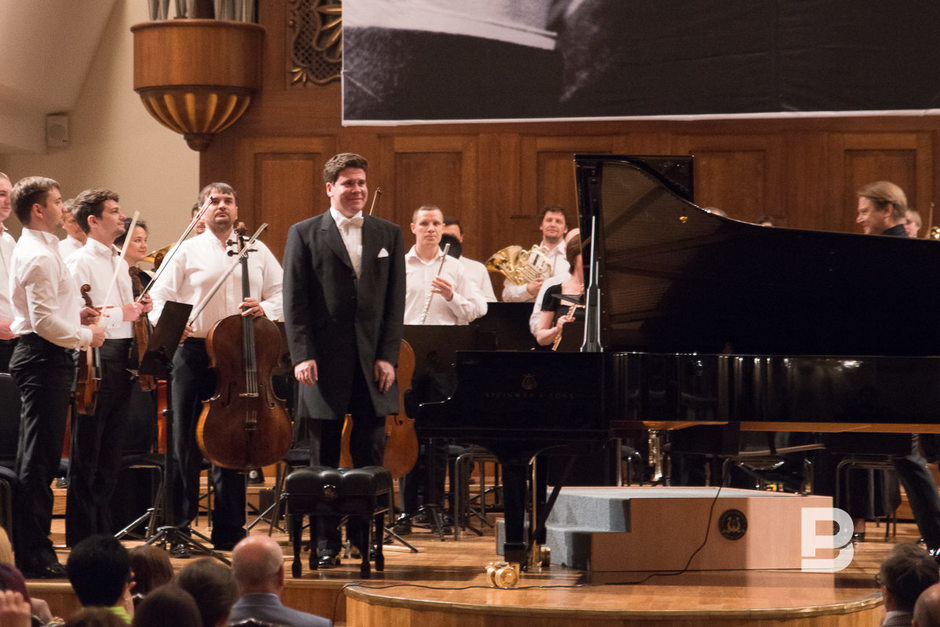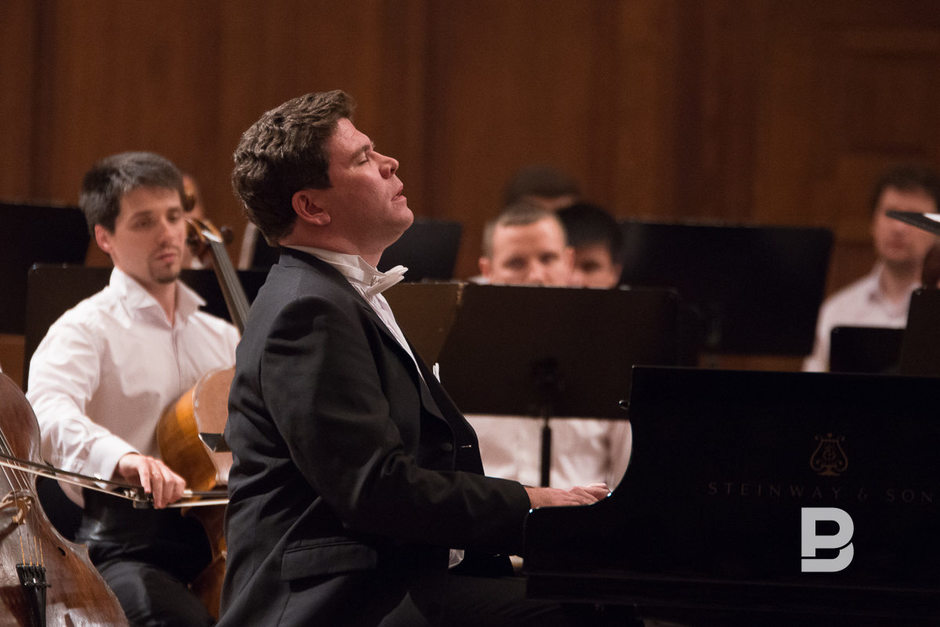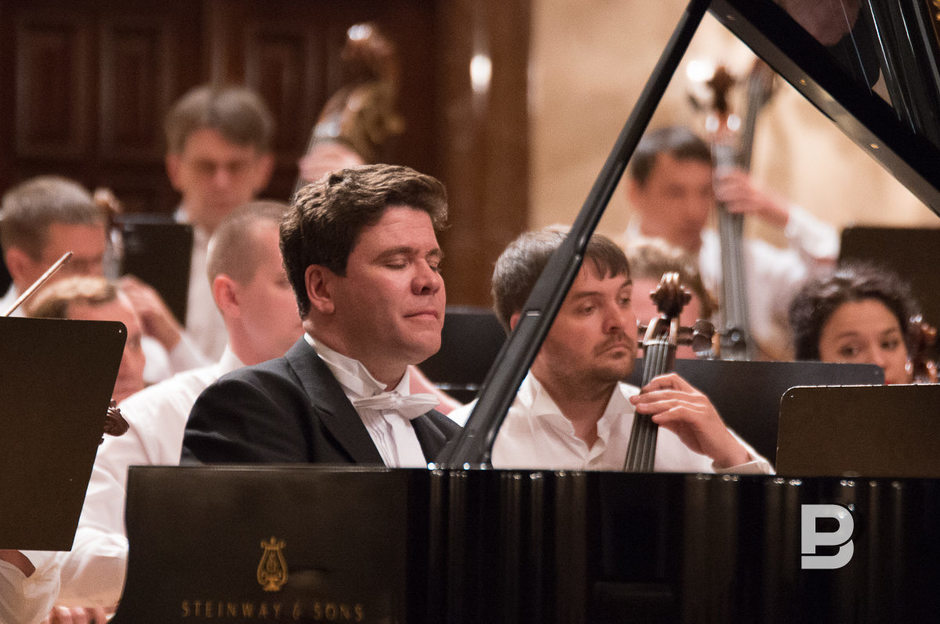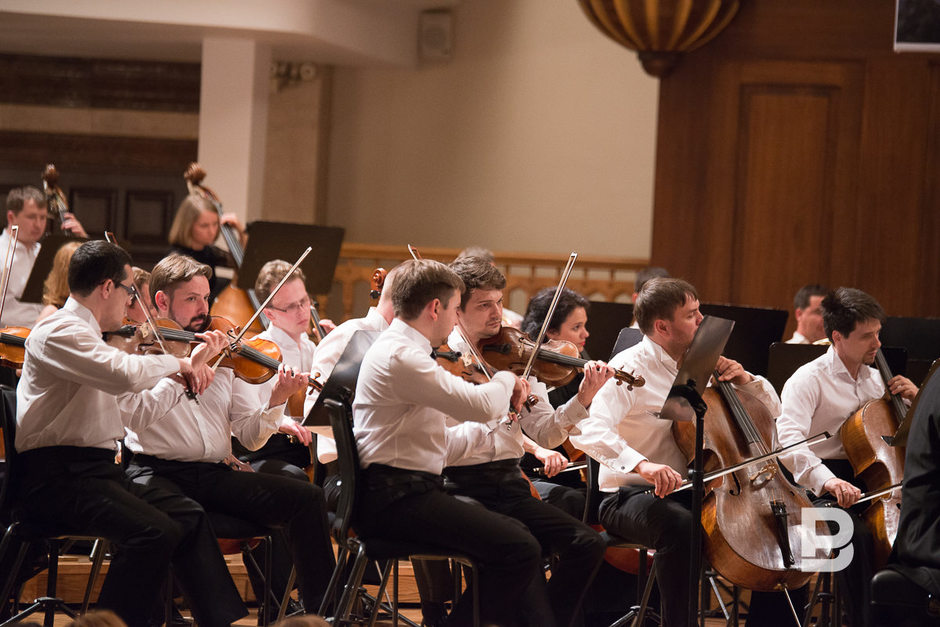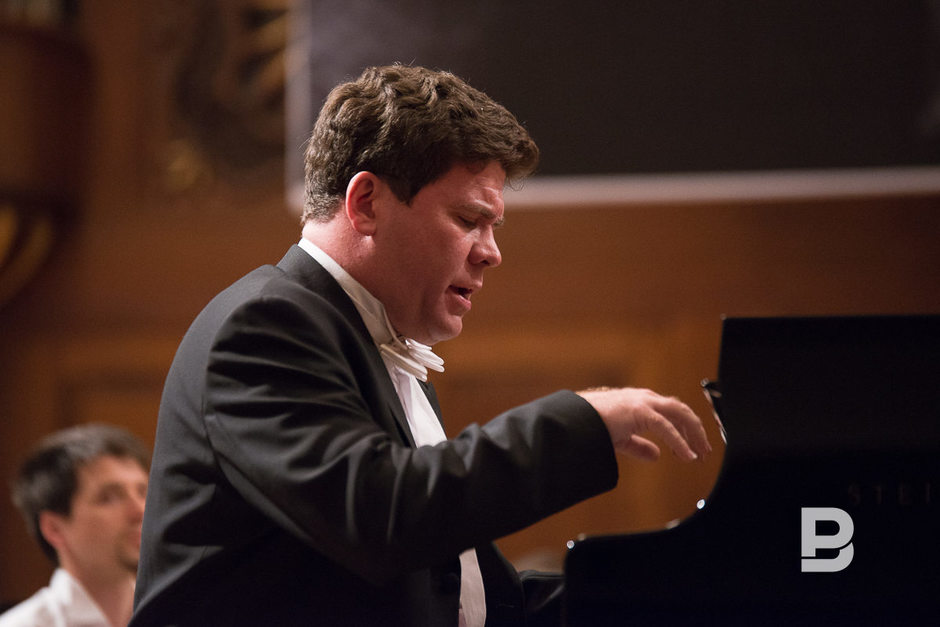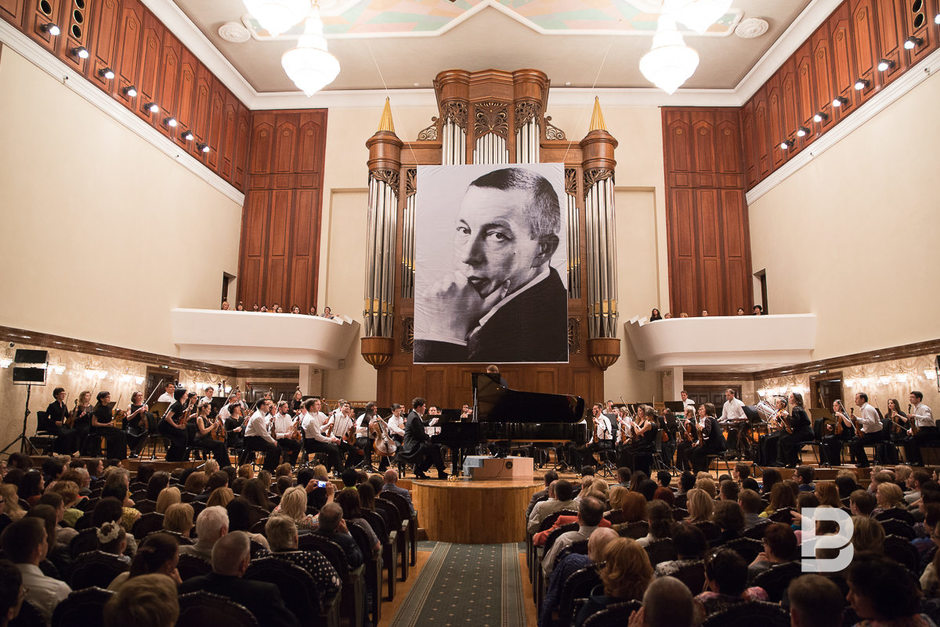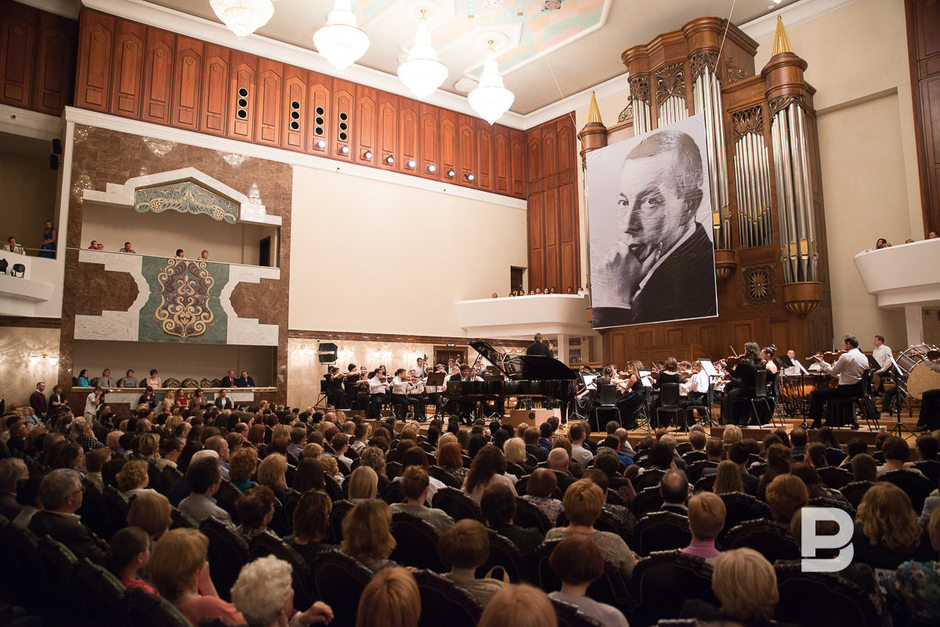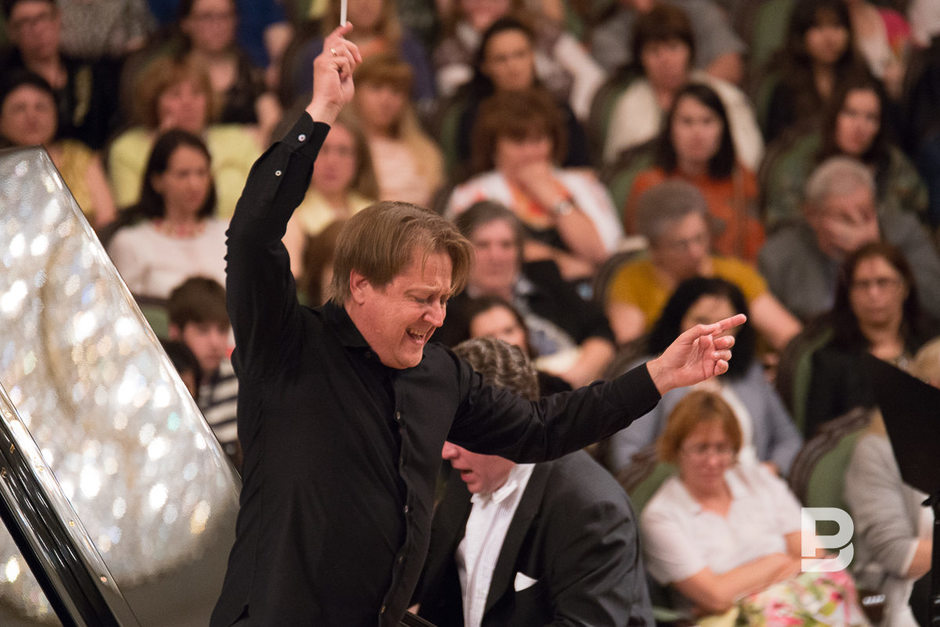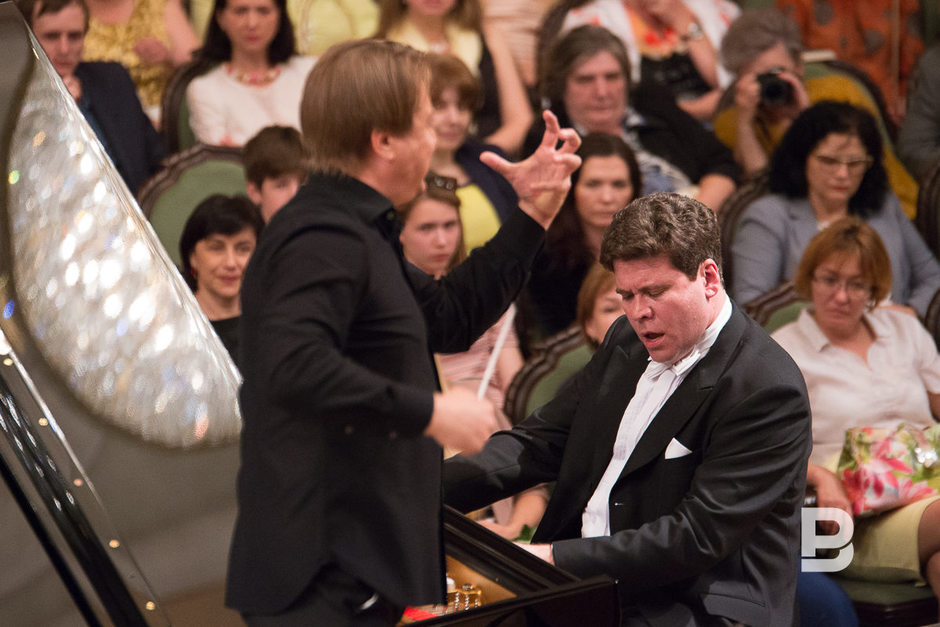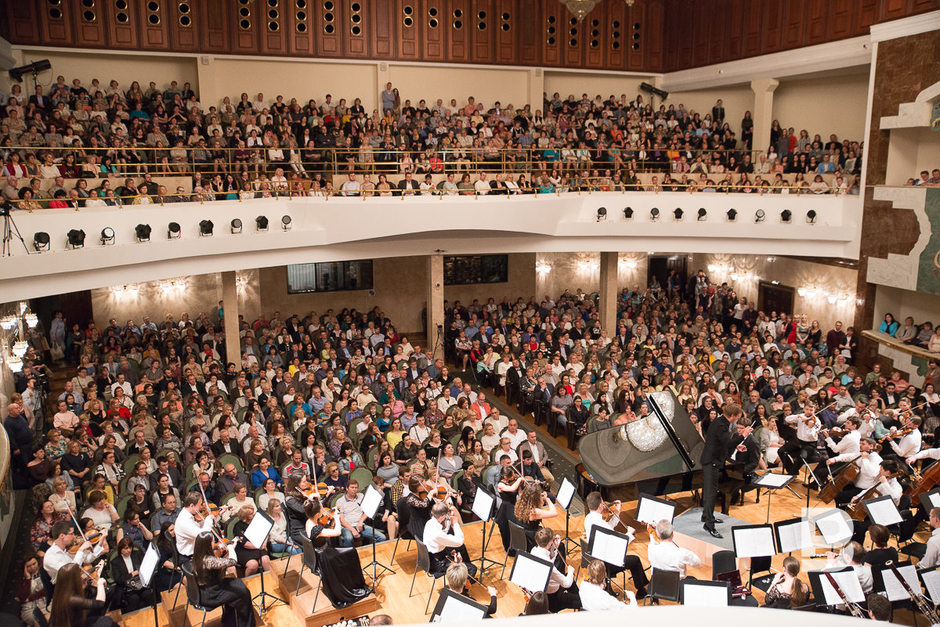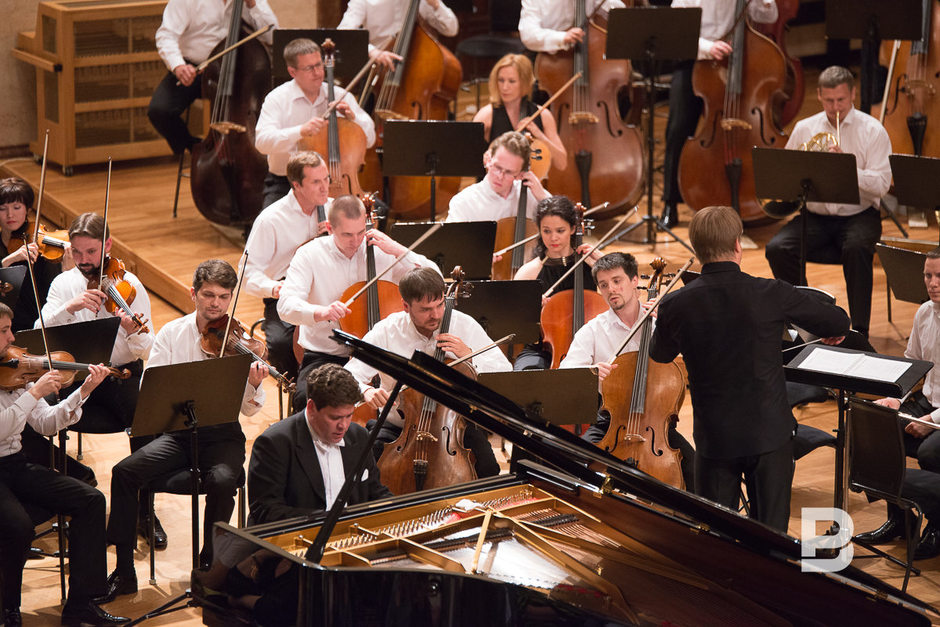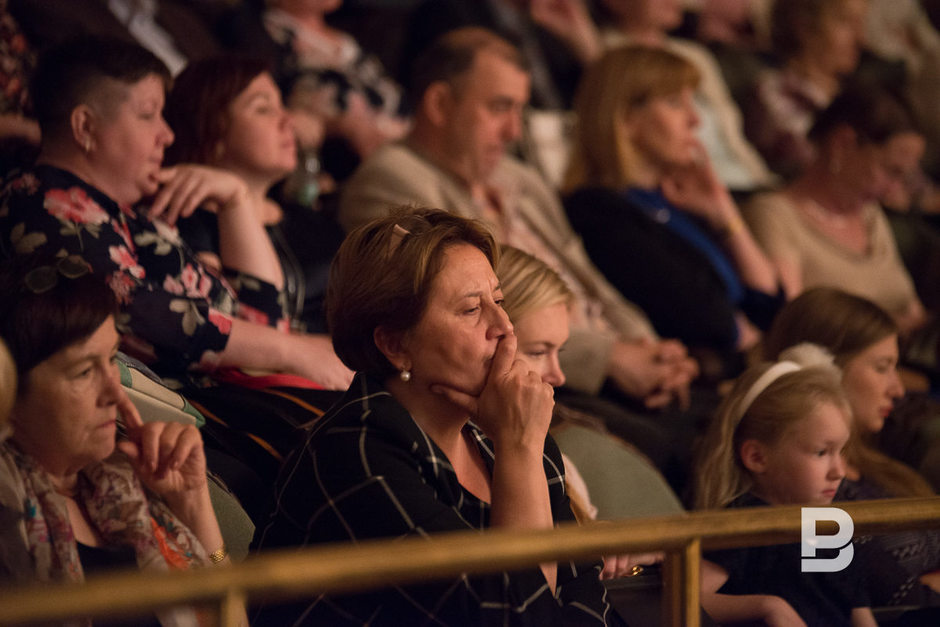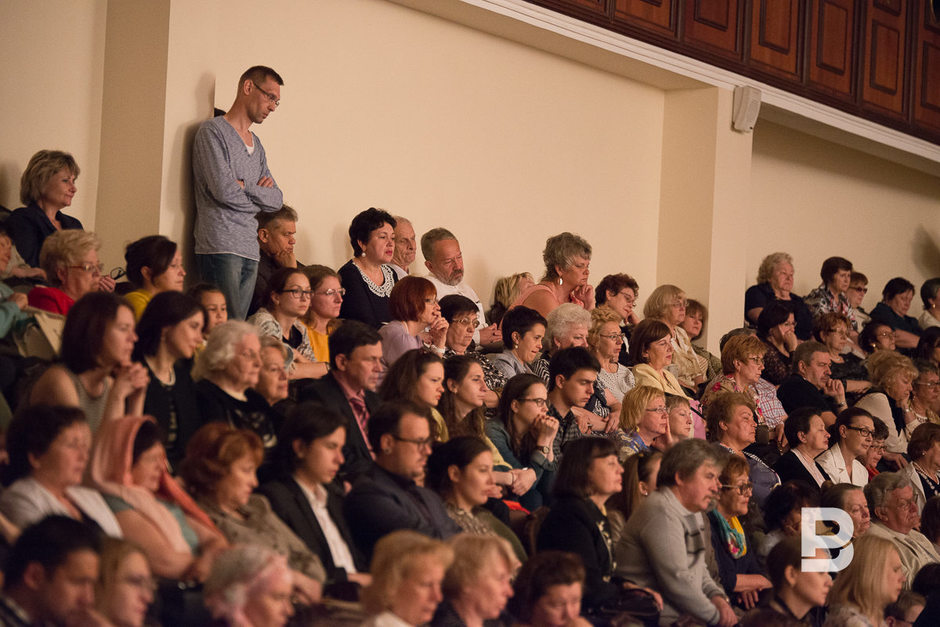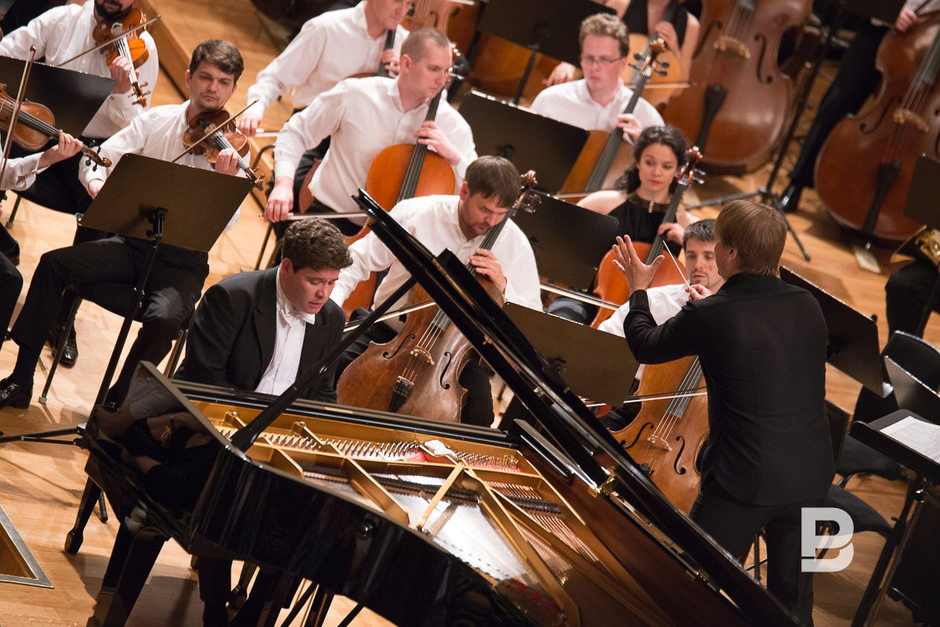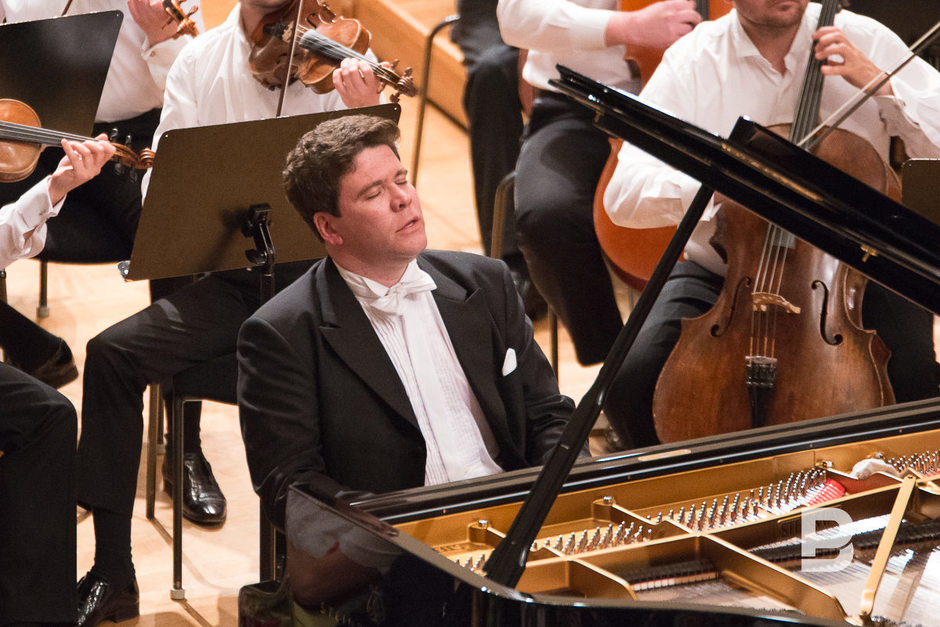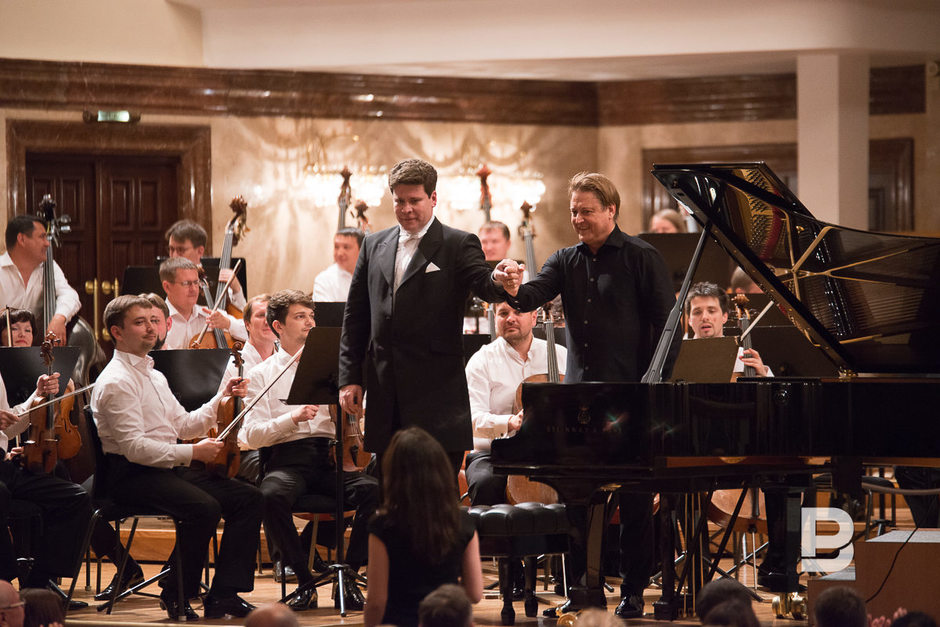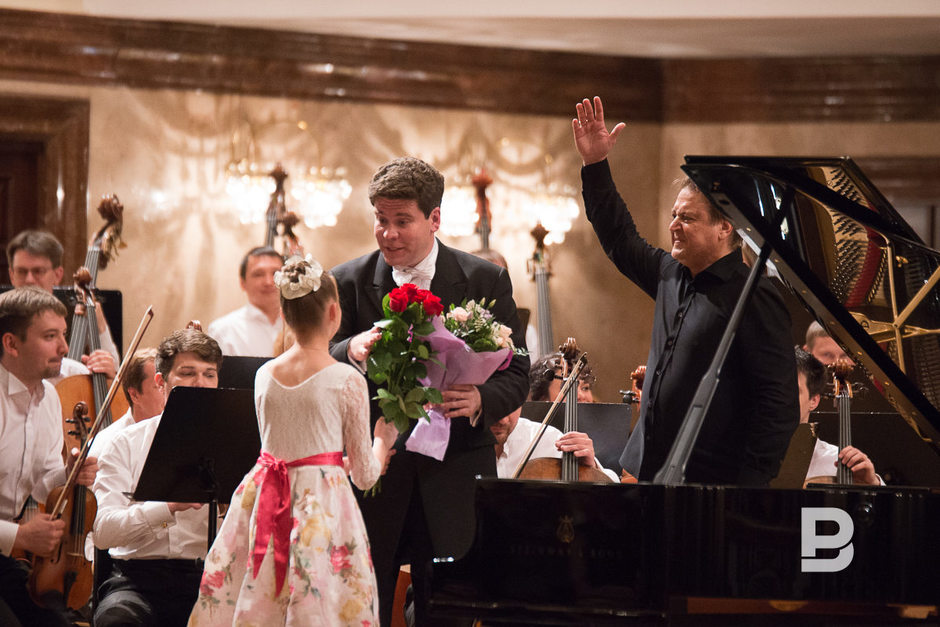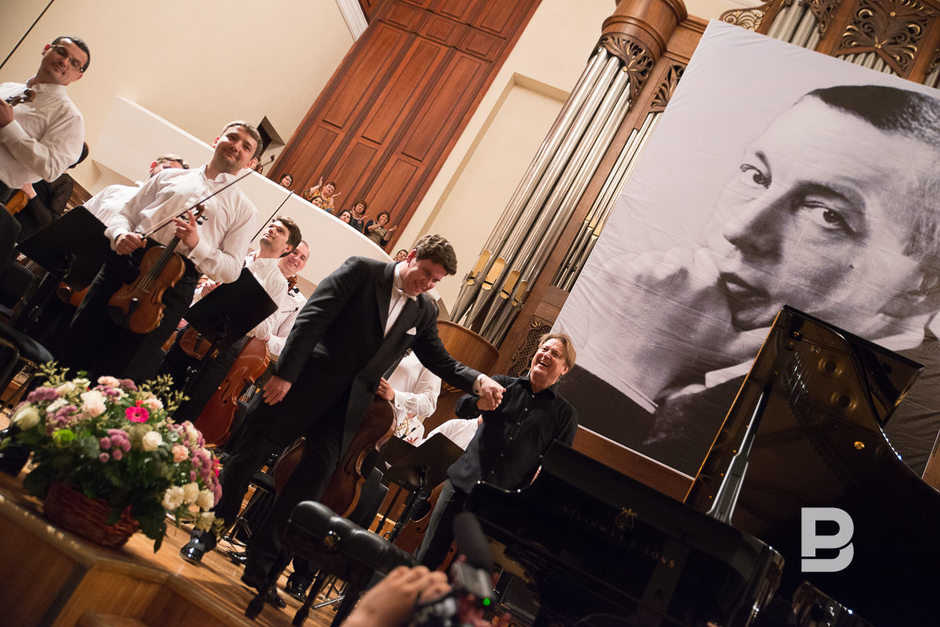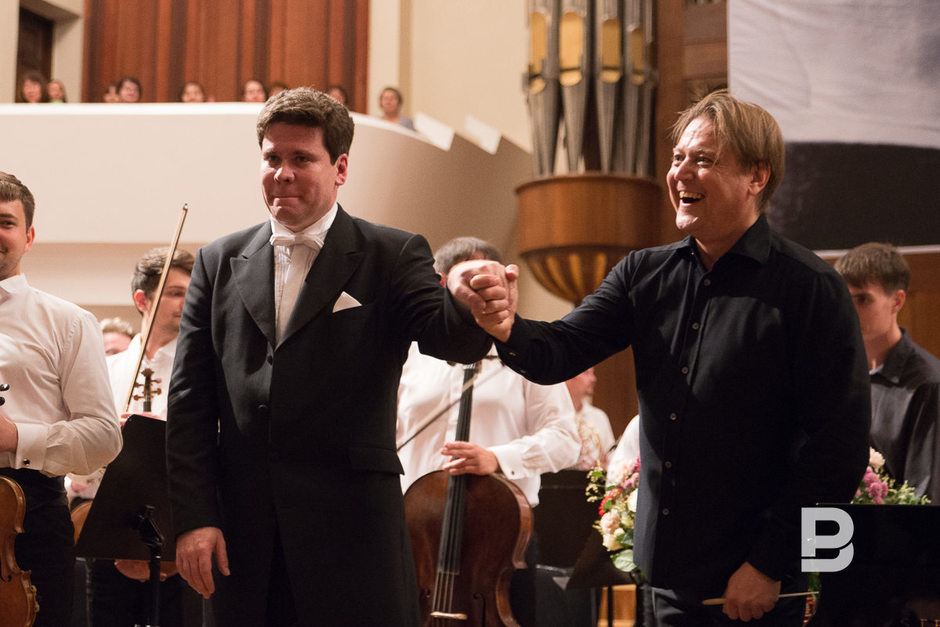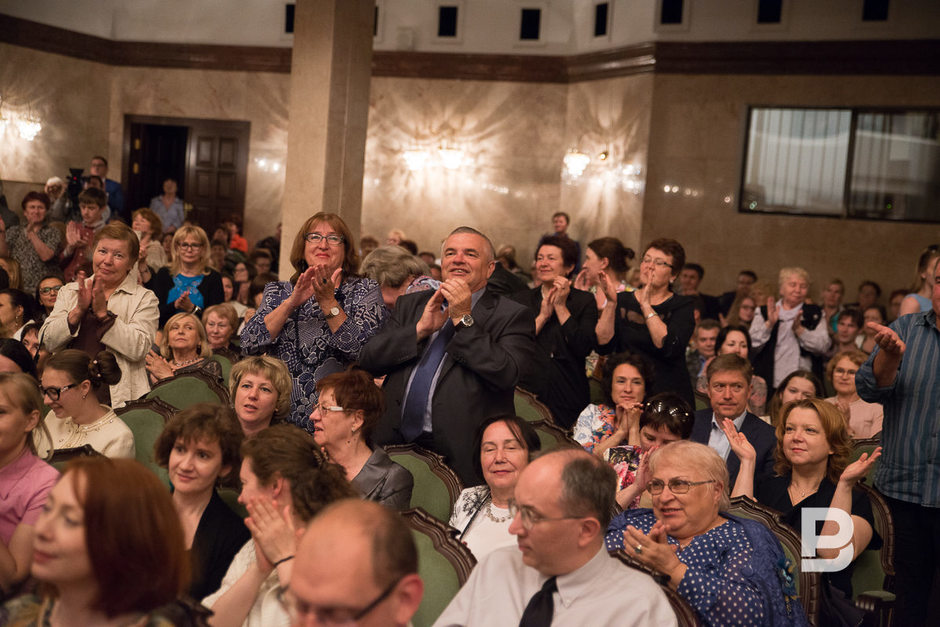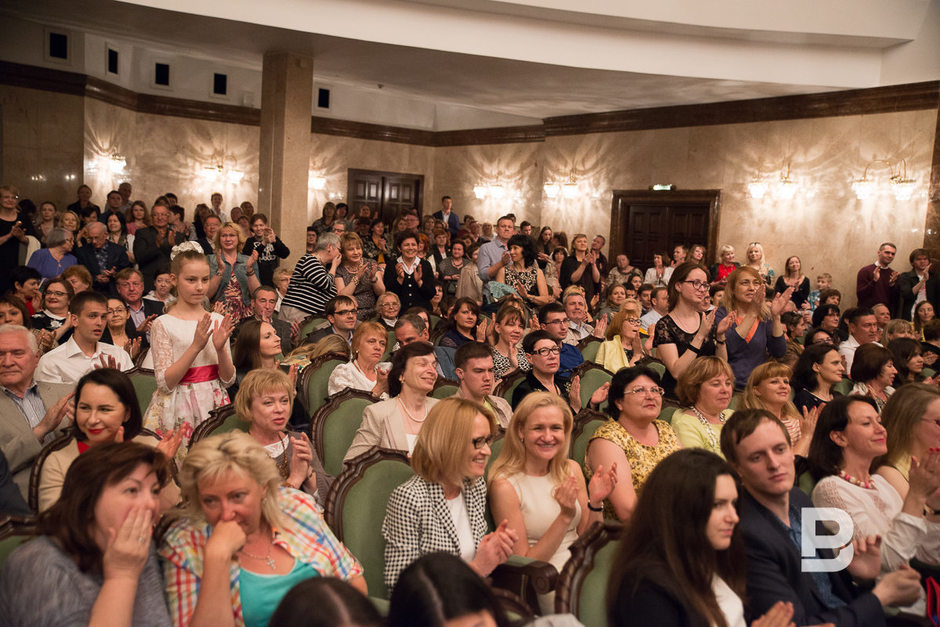Tatarstan State Symphony Orchestra performed in alliance with dictator
White Lilac International Festival named after Sergey Rakhaminov is taking place in Kazan. On 2 June, our orchestra played with Denis Matsuev to a full house and amazed the spectators with a tragic sound of Shostakovich's music in the second part of the concert. A correspondent of Realnoe Vremya visited the event.
Not only in football
The announced press conference together with Denis Matsuev and the principal conductor and director of the festival Aleksander Sladkovsky dragged on. The excuse was understandable: Denis Matsuev just arrived from Samara by car.
In Kazan, the famous pianist finished his Volga tour. Apart from Samara, he had given concerts in Nizhny Novgorod. Having arrived in Kazan, he had some time to have a rehearsal with the Tatarstan State Symphony Orchestra and went to meet with journalists.
The press conference started with questions about football – Matsuev will be an ambassador of the World Cup. He is an inveterate football fan. As he told the journalists, although he has a concert in Paris on 12 June, he will probably be in Marseille on 11 June to support the Russian national team.
Aleksander Sladkovsky promised the city will have an entertainment programme during the FIFA World Cup, which, as it is known, will be held in Kazan too. So, the Tatarstan State Symphony Orchestra and its director will make their own contribution.

Then more serious questions were heard. Matsuev, for example, told he likes to visit concerts of our orchestra as a listener. A good playing inspires him, and after someone's successful performance, he is tempted to sit at the piano. He 'erases' an impression of not very good performances of his colleagues by choosing good records.
As for the Piano Concert No.3 that Matsuev was to play in several minutes, the pianist called it Rakhmaninov's most difficult composition. 'I was 14 when I played it for the first time. It was terrible, but I was happy. I recorded my performance and listened to it,' Matsuev remembered.
The most difficult concert
It can be said without exaggeration that Sergey Rakhmaninov's Piano Concert No.3, which requires soloist's virtuoso technique and conductor and orchestra's special delicacy, is indeed the most difficult concert of this composer. There is one detail more: a pianist will always have a representation of Rakhmaninov, a top pianist who performed the premier of Piano Concerto No.3 in the USA at the beginning of the last century.
The Big Concert Hall was full to the gills on that day. The spectators sat on the choir balconies, stood in the aisles, there was made an additional row of chairs. A bit ironic Sergey Rakhmaninov's portrait, which was above the stage, looked at all this rush. The very composer played for the Kazan people back in the day in the Hall of Nobility, today's City Hall.
Denis Matsuev was full of energy, so that it was difficult to believe he covered a long distance from Samara to Kazan. Rakhmaninov wrote his Piano Concerto No.3 in a way that the soloist performing the composition not only dominates but also dictates. And the orchestra and conductor must become his allies. One characteristic of Aleksander Sladkovsky's conducting was noticeable during the performance – his delicacy and skill at working in tandem with soloist. The soloist's dictate was accepted and supported according to the composer's desire.
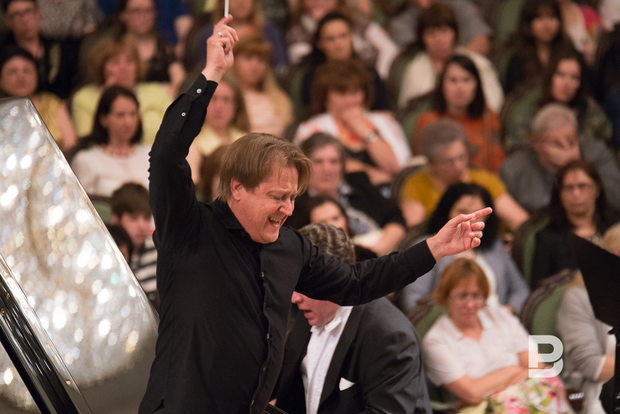
Lyricism of Rakamaninov's music, its festive colours suddenly followed by tragic notes. The Concerto No.3 cannot be performed without this world of improvisation. Denis Matsuev's playing had it all. The pianist's temperament was over the top. This is why it is no surprise that after the end of Rakhmaninov's concert, he had to give two encores.
The second part of the concert was given to Dmitry Shostakovish's Symphony No.5. It should be noted this summer Aleksander Sladkovsky and the Tatarstan State Symphony Orchestra will organise an unprecedented performance – they will record Shostakovich's all symphonies; the composer occupies a special place in the maestro's soul. Sladkovsky is a pupil of the Leningrad Conservatory, and Shostakovich is one of the most 'Leningrad' composers.
This time the maestro, who used to impress people with his expression, was a bit reserved and laconic. He seemed to pass the notes of the composer's tragic foresight through himself. The Symphony No.5, which was performed by an orchestra conduced by Evgeny Mravinsky during its premier in Leningrad, was written in 1937 – one of the most terrible years in the history of the country when prisoner transport vehicles ran about cities every night like fatal ghosts…
Although the composer wrote that his main topic is a formation of a human. As any genius, Shostakovich could not help but feel that horrible time his country suffered from. The time when human life cheapens. However, the genius always has the foresight. Did this gift dictate the terrible march in the first part of the symphony that recalled marches that would sound over the country near Leningrad in several years?
But a human being must handle and resist this march that stifles all human feelings and the chaos that trying to swallow. To withstand and move forward. As a tout string, Aleksander Sladkovsky told this story about a person, going through all obstacles together with the orchestra. The story told that a worthy life is not a set of accidents but a person's purposive choice. A choice when person denies a soothing 'we have to live' and tells 'we must live!'.
And Shostakovich did coincide with Sergey Rakhamaninov who always lived, created compositions objectively.
